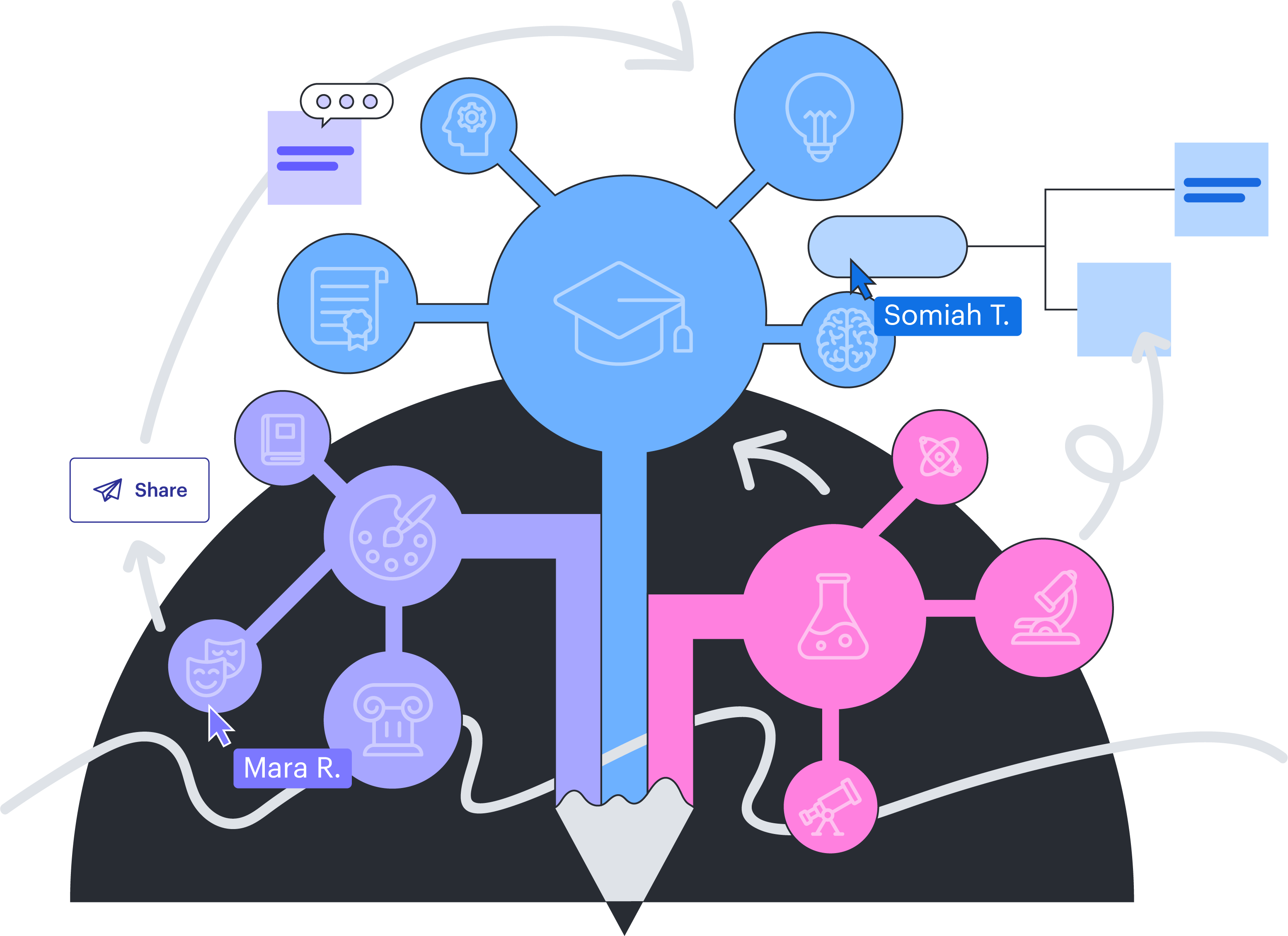Unlocking the power of Lucid in Higher Education
A collection of educator-built use cases (by discipline and practice), complete with instructor templates and video guides.

Teaching disciplines:
Visualize complex processes, analyze data, and create interactive learning experiences that bring subject matter to life.
College of Business
Accounting, Finance, Marketing, Management, Economics, Entrepreneurship resources
College of Information & Computer Sciences
Computer Science, Information Systems, Cybersecurity, and Data Science
College of Humanities
English, History, Philosophy, Languages, Social Sciences (Psychology, Sociology, Political Science, Anthropology
Instructional strategies:
Effective teaching goes beyond lecturing—it’s about engaging students, fostering collaboration, and promoting deeper understanding.
Collaborative learning
Encourages students to work together through group projects, discussions, and peer feedback to deepen understanding.
Active learning
Engage students with hands-on activities, problem-solving, and real-world applications to enhance critical thinking.
Discussion-based learning
Promote deep comprehension through Socratic seminars, case studies, and debates, allowing students to analyze and articulate ideas.
Case-based learning
Encourage collaboration and critical thinking as students apply knowledge to real-world scenarios through guided case studies.
Lecture & lesson planning
Lucid doesn’t just support student learning — it also helps professors streamline planning and preparation for lectures and lessons.
Institutional workflows
Manage and improve workflows for enhanced operational efficiency
How Students use Lucid
See how students are using Lucid to collaborate on projects, simplify complex concepts, and enhance their learning experience.
Make group project collaboration easier
Discover how data science student Haijing used Lucid's collaborative features and templates to streamline group projects.
Study smarter, not harder using Lucid
Level up your studying in higher education with visual strategies.
Bring clarity to complex group projects
See how the University of Waterloo Orbital team uses Lucid to build low Earth orbit CubeSats. Use this template to centralize your technical vision, accelerate development, and build a lasting foundation for your team.
How UW Orbital navigates complex engineering challenges
Discover how UW Orbital’s electrical subteam uses Lucid to navigate strict power budgets and extreme temperatures. By streamlining satellite architecture and team communication, they turn high-stakes engineering hurdles into successful missions.